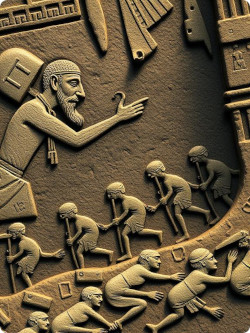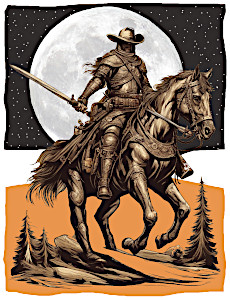A hundred years ago it was called shell shock.
The next generation called it combat fatigue.
The generations since have increasingly treated the spiritual casualties of war as accidental victims in need of chemical, counseling and canine solutions. I have never been to a declared war. Yet I know numerous men who are severely injured in their mind from their time spent being hounded by enemies in the undeclared war of The State versus men. These men have no recourse to counseling through medical channels. For, in this world lit only by gaslight, we must pretend that those foes who have hunted us to extinction, driven most of us far from our homes, are either the victims of our crimes, or are blue uniformed paragons of civic service, our imperfect yet ever eager protectors.
Such lies make the spiritual horror of life more difficult to escape. Thus the State wages a forever war against the mind of its chattel, claiming we are free, despite our absolute inability to flee from State control. It is notable that there was no such thing as PTSD in antiquity, in the middle ages, or in the early modern era.
In Classical Antiquity one army ranged and fought for an entire generation, some portions for it longer. Under Phillip they knit Greece. Under Alexander they conquered the greater portion of the known world. These men did not suffer from PTSD, despite dozens of battles, scores of sieges and grinding hardship. Eventually, with each man having won the prizes assigned to great lords in the time of their grandfathers, most of the national core of the army demanded a home coming, or a new home. These men were no longer young.
Yet, our young men, often come home ruined after a few years, most of which was spent far from explicit danger.
Xenophon, leading his 10,000 fellows home after brutal battles, dastard betrayals, had an army of perhaps 4,000 left who stayed with him and begged him to lead them back to war against the enemy, out from home again. But he, a young man, was sick of the politics of war, and wished to settle down and write—for he had not even been a captain when he joined, was simply a common soldier, like a Hemmingway or Orwell—a bard, thrust into leadership by the death of his leaders.
Woven into Xenophon’s story, were many occasions in which he and his men would make truces, reverse their march, fight when they did not want to fight, so that they could honor their dead by burial or cremation. Likewise, Alexander always treated his dead as heroes, even bringing a sculpture to honor his fallen men with a statue. In both armies religious observations were keenly observed. Also, in both cases, the officers lead from the front, and, before hand, would place their plans before their men in order to gain approval.
Note that this society did not believe that the fallen soldier would go to heaven or paradise to reap an eternal reward. Likewise, the fallen foe, was not cursed to forever burn in hell. All of these men, save a few heroes who might make great, were destined for a dusky afterlife of shadow and apathy, of unslaked thirst and an ennui of fey regret.
Some modern soldiers do believe that they are destined for heaven or paradise and their foes a sizzling afterdoom. Most though, worship money or government. Perhaps the general loss of faith, modern faiths that produced fanatical acceptance of death in the ranks, have effected the soldiers mind in our time.
Below are some brief passages from Kallinus of Ephesos exhorting the men of his city to fight the barbaric Kimmerians. After naming the men of his city cowards, he declares that, “Death is a thing that will come when the spinning Destinies make it come.”
Death, even for the sons of gods, is inescapable, he declares, and further, that cowards who run away die as often by some chance of peace as do brave men who stand and fight. He addresses the coward, “such a man is not loved or missed for long by his people...”
The hero he lauds, “For all the people grieve for the high-hearted warrior after his death; while he lives, he is treated as almost divine.”
This passage gives us the clue for the ambition of men such as Alexander to rise into a place in heaven reserved only for the most accomplished.
Below are some aspects of modern war that have been cited as causes for the deranged “discharged” soldier:
“Shell shock,” the natural disaster quality of industrial warfare. The ancient analogues were earthquakes, plagues, prodigies, storms, an eclipse named by Archilochus. Concepts of the supernatural and the inconstant nature of these offer a respite not available in a world where god-like weapons are made as a business.
Combat fatigue comes from the logistical ability of modern armies to stay engaged with the enemy at a lethal intensity, not simply starving an enemy city. This is a second scaling up of war that threatens the mind.
Post Traumatic Stress Disorder?
Why the inability for a modern man to process war?
#1. He is a soldier, rather than a warrior. The identity that got him through war, is then taken from him as he is mustered out and joins the general heard of atomized workers. The system has recognized this by concocting the lie that modern soldiers are warriors, when they explicitly are not. For they serve a system for a time, not a clan, race or class until old age.
#2. Taboo periods in which groups that served together graduate out of war and back to civil occupations are gone, as the man is broken out of his company alone and processed through a system attended by those he did not serve with. Many of these men are offered drugs, often illegal, by government agents as they muster out. Disapproval of the returning, disarmed, “discharged” soldier by modern civilians, who believe deeply that it is not their duty to defend their own persons, is a well understood factor. I have felt this often as I was hunted in the streets of my home town by my traditional enemies and the police. My family and friends forever blamed me for the sin of living in my home and not running away. Five Negroes attack me on the way home from Megan’s and all the folks I know claim it is my fault for not making more money, living with mommy, going back to school, etc. People who care about me still grow angry at my return to the home where I was spawned. Strangers vocally hate me for resisting conquest, for returning the battlefield where I lost my honor, in part to regain it and in part to help the few souls I left behind when I was routed by the enemy.
#3. No heroes are permitted beyond the status of victim. The hero is feared by the system and the civilians. The victim is elevated in his place. Alexander, after each battle, visited the wounded and spoke with them each, one by one.
#4. Officers do not lead, but direct. This is a key aspect forced on the soldier with the lethal machine technology by 1864, after dozens of generals were killed with the minieball round. The machine gun made placing the brains up front untenable. Alexander won most of his battles, by simply charging out ahead and challenging his men to save him or see their king dead. The other armies often broken at this sight. Smaller formations held together, such as under Xenophon, as they were lead from the front by elected generals and captains.
#5. Comrade separation occurs due to lethal distance killing technology, from the machine gun to artillery that hits from beyond human sight. Where the warrior of the past could reach out and touch his mate, that mate is often barely in sight or under cover. The most emotionally stable and steady combat units were heavy infantry, where men stood shoulder to shoulder. The other effective units were packs of light infantry who hunted the enemy, and horsemen, being more effective the closer they rode, but also enjoying the company of a horse, a mate of empowering sorts.
-6. Class derangement, in which the soldier serves as a proxy for a distant manager who hates him, is bad enough. Yet worse, is that officers, NCOs and enlisted men do not live together, but are separated into three classes. Where Xenophon, a soldier, then captain, then colonel and finally general, ate and slept with his men, today’s lowest officer must stand aloof. Xenophon and other officers of that expedition were constantly dealing with attempts by employers to separate them from their men. This evil process, which he resisted, thus surviving, is actually the foundation of the modern military. The true death of the warrior class occurs when leaders may no longer socialize with their men. Alexander had some 3,000 enlisted men who could share his company at will, being social peers. The rest need only ask.
Modern Military PTSD is designed by The State to afflict the soldier, to render him beyond warrior spirit. Likewise, civilian PTSD through gas light and street hunts, have as their aim the Soul of man, and the mind that welds it to this body.
There is no greater evidence for an ongoing conspiracy against mankind by our masters than the reduction of warrior to soldier.











